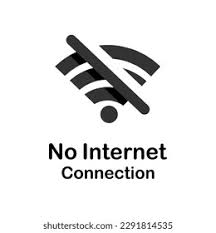Colbert Gwain @The Muteff Factor (formerly The Colbert Factor)
There once lived an ambivalent character in Muteff who was always at odds with a neighbor who lived downstream on contentious community issues. The moment he learned that his rival neighbor was planning to construct a house that could overshadow his years of effort, he hurriedly gathered his children to erect a water blockade upstream, using banana stalks and stones to divert the flow of water downstream.
When the downstream man woke up with his family early in the morning to start molding bricks for the house, he discovered that the water, which had once flowed fluently, was barely trickling down, to the extent that it would take a whole day to harvest just one drum of water. When news reached him that it was his traditional enemy upstream who had obstructed the flow of the water, he raised an alarm, and concerned villagers had to quickly intervene. To defend himself, the man upstream initially claimed he diverted the water because he, too, was in the process of molding bricks for construction, before later insisting that since the water passed through his compound, he had an exclusive right to it. However, it was only when Muteff community leaders reminded him that the stream was a common good and everyone in the village had unfettered access to it, that he reluctantly unblocked the stream for his downstream neighbor to mold blocks and construct his house.
The current hide-and-seek game with the internet in Cameroon over the past few days is reminiscent of the proverbial man who crosses the bridge and then destroys it to prevent others from following. It’s also a story of how some politicians use social media to reach out to netizens and canvass for votes, only to abruptly throttle internet access after the hotly contested October 12 Presidential election. President Paul Biya himself announced his intention to seek reelection through social media, specifically Twitter.
If the internet supply had been as disrupted then as it is today, no Cameroonian would have received that announcement. Notably, one of his key promises in the 2025 reelection campaign manifesto was to pursue digital and technological innovation in Cameroon. However, just days after the election, as Cameroonians await the official proclamation of the contested results on October 27, 2025, it appears the President is reneging on this critical campaign promise. If this nationwide internet disruption wasn’t intentional, why hasn’t the government denounced it or summoned Internet Service Providers (ISPs) to explain, given that the internet has become a public good? The silence is deafening. This other disruption, the third since the first Internet shutdown in January 2017, makes the Internet shutdown to become the new normal in a Cameroon that claims to be emergent by 2035.
Choosing censorship over connectivity because of an election dispute would be ludicrous for a country that claims to be promoting the digital economy as the cornerstone of its development. This only serves to widen the digital divide and exacerbate frustration amongst young Cameroonians who rely heavily on the internet for their livelihood. In today’s society, slowing down the internet, even for a single day, costs billions to the gig economy. In 2017, Cameroon’s internet shutdown in the Anglophone regions lasted 94 days and cost the country at least $38 billion, an equivalent of XAF21.48 billion.
In a recent open letter to President Paul Biya, Access Now, a global network of organizations that promote and protect the rights of citizens worldwide to the Internet, urged authorities in Cameroon to ensure reliable, continuous, open, and secure internet access before, during, and after the October 12, 2025, presidential election, to ensure a participatory and transparent electoral process.
This letter was based on the fact that in recent months, people in Cameroon have reported the emergence of network throttling and partial disruptions, especially in crisis-hit areas, and during periods of civil unrest. According to Access Now, this was a worrying trend as elections are a well-documented trigger of shutdowns. “Election-related shutdowns restrict people’s access to information and active participation in democratic processes and governance, make it difficult to document irregularities, and erode public trust in electoral processes”, states the organization. “Ensuring access to the internet throughout the election process is a key component to ensuring peace, stability, and smooth transitions of government”, the statement further reads. Access Now and the #KeepItOn coalition urged authorities in Cameroon to uphold their obligation under both national and international frameworks and ensure unfettered access to the internet throughout the electoral period and beyond.
The internet and social media platforms play a critical role in enabling and enhancing participatory governance and transparency in a democratic society. They provide space for advancing national conversations at a national scale, enabling access to critical and updated information about election processes and candidates, facilitating reporting and documentation of events and outcomes, as well as providing an avenue to hold authorities accountable for their actions.
“Internet connectivity is not a luxury, it’s an essential tool woven into the fabric of everyday life — from education to healthcare to democratic participation. The internet is an enabler of essential human rights and is key to sustaining meaningful democracy,” said Bridget Andere, Senior Policy Analyst at Access Now. “Authorities in Cameroon must respect human rights and #KeepItOn.”

